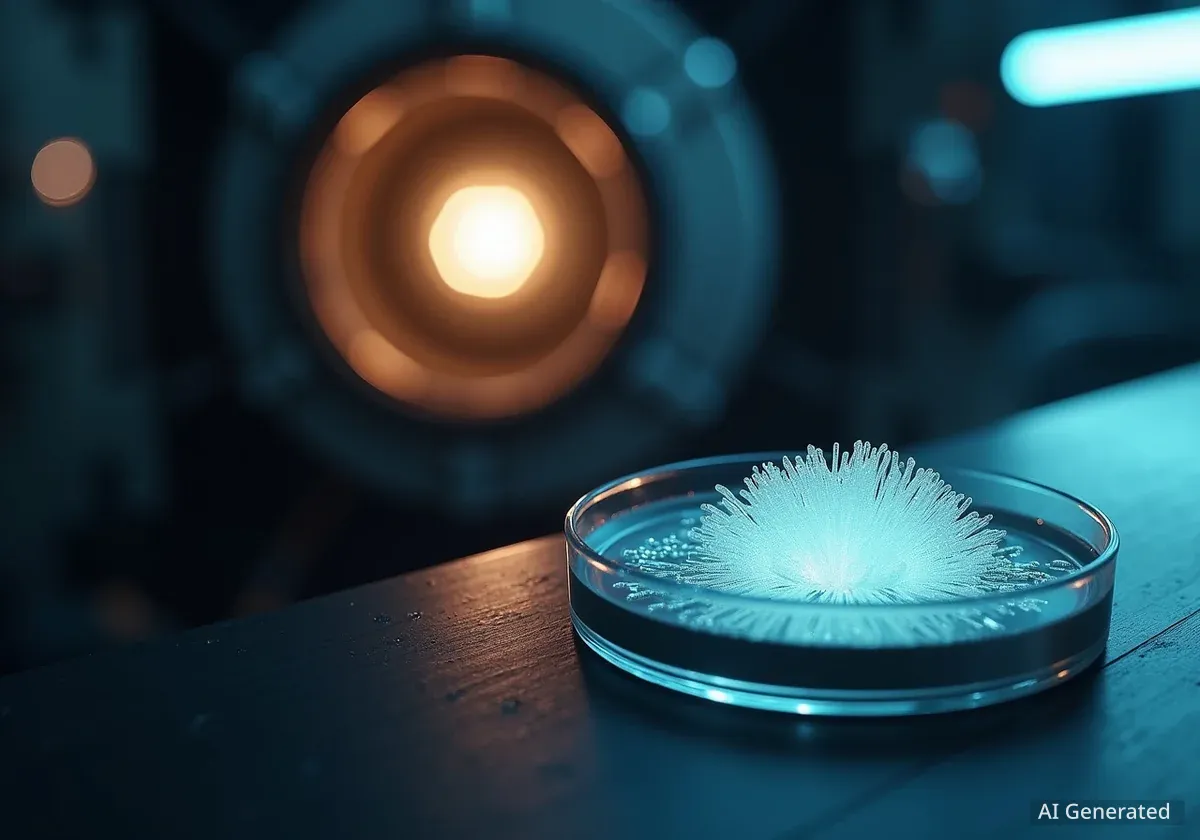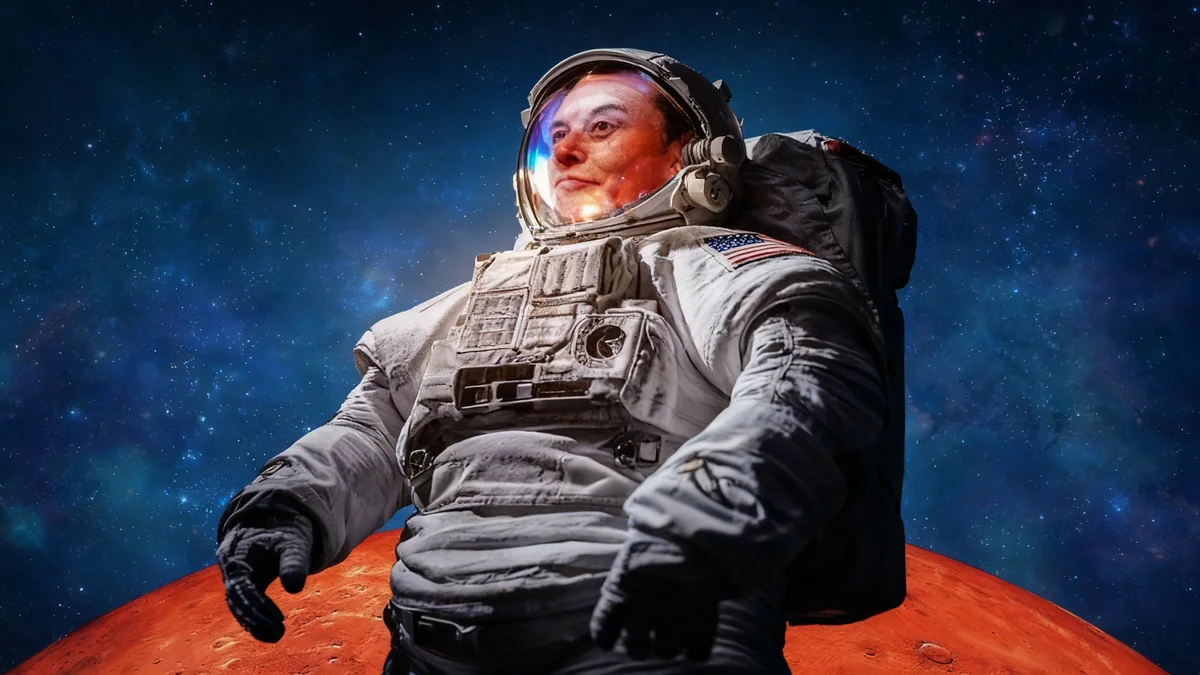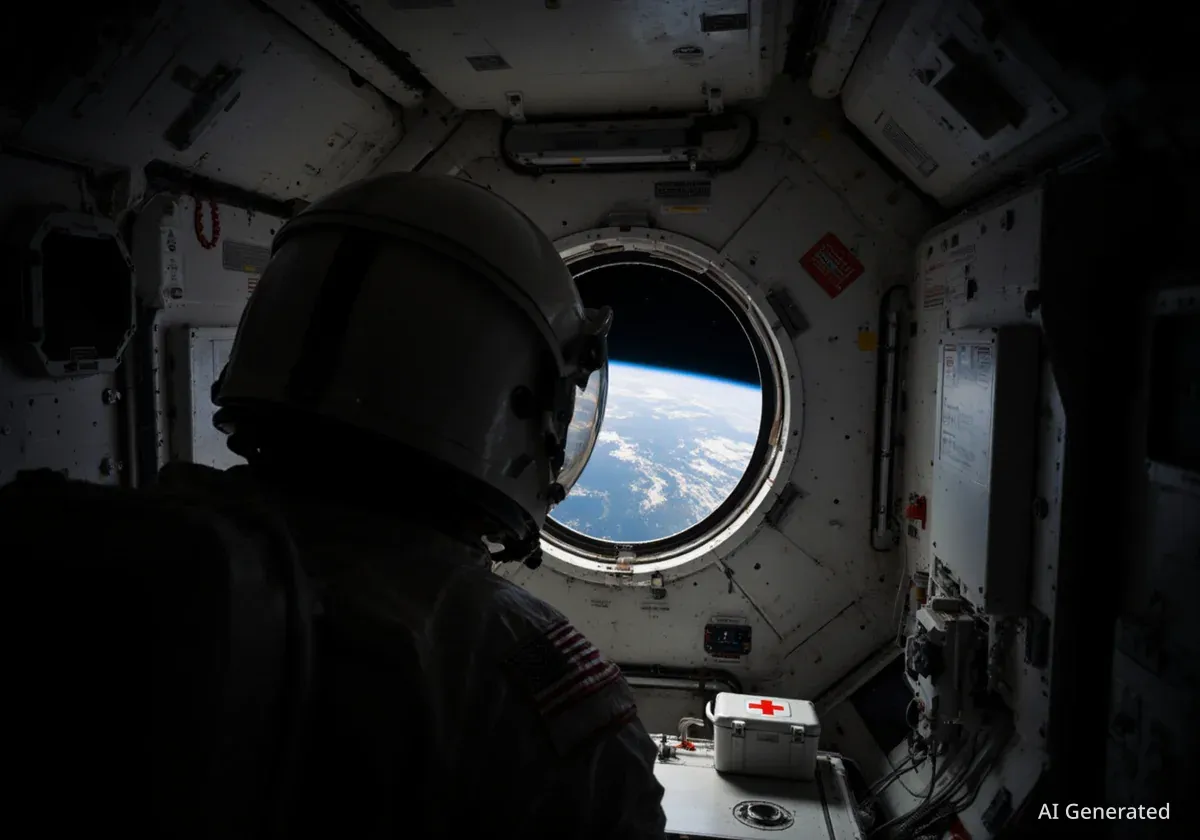A groundbreaking study has confirmed that bacteria essential for human health can survive the violent forces of a rocket launch and atmospheric re-entry. Research led by RMIT University in Australia demonstrated that spores of Bacillus subtilis remained viable after being sent to the edge of space, a finding with significant implications for long-duration space missions, including future trips to Mars.
Key Takeaways
- Spores of the bacterium Bacillus subtilis survived a suborbital rocket flight reaching an altitude of over 60 kilometers.
- The microbes endured extreme conditions, including acceleration of 13 g and deceleration forces up to 30 g.
- This research is vital for developing life support systems to maintain astronaut health on long-term missions.
- The findings could also advance biotechnology and medical research on Earth, particularly in combating antibiotic resistance.
A Pioneering Experiment in Astrobiology
As space agencies set their sights on sending humans to Mars, ensuring astronaut health during years-long missions is a primary challenge. A crucial part of this is understanding how the human microbiome—the collection of microorganisms living in our bodies—reacts to the space environment. This Australian-led study provides the first real-world evidence that key bacteria can withstand the initial, intense phases of spaceflight.
The research team chose Bacillus subtilis, a bacterium known for its role in supporting the human immune system, gut health, and blood circulation. While it is recognized as a particularly resilient microbe, testing its limits provides a critical baseline for future studies on other, more fragile organisms.
Why Bacillus subtilis Matters
Bacillus subtilis is a common probiotic found in the human gastrointestinal tract. It plays a supportive role in digestion and helps stimulate the immune system. Its ability to form tough, dormant spores makes it an ideal candidate for studying microbial survival under extreme stress, both in space and on Earth.
According to Distinguished Professor Elena Ivanova from RMIT University, a co-author of the study, the results expand our knowledge of how living things respond to space. "Our research showed an important type of bacteria for our health can withstand rapid gravity changes, acceleration and deceleration," she stated.
The Extreme Journey to the Edge of Space
To conduct the experiment, researchers launched the bacterial spores aboard the Suborbital Express 3 sounding rocket from Sweden. The flight subjected the microbes to a rapid sequence of extreme conditions that are impossible to fully replicate in a laboratory setting. The entire journey from launch to landing was a test of endurance.
Surviving Intense Forces
During its ascent, the rocket subjected the payload to immense physical stress. The bacteria experienced a maximum acceleration of approximately 13 g, which is 13 times the force of Earth's gravity. This phase tested the structural integrity of the spores under intense pressure.
Flight Profile By the Numbers
- Maximum Altitude: Over 60 kilometers
- Peak Acceleration: ~13 g (launch)
- Peak Deceleration: Up to 30 g (re-entry)
- Microgravity Duration: More than 6 minutes
- Re-entry Spin Rate: ~220 rotations per second
After the main engine cut off, the payload entered a period of microgravity, or near-weightlessness, that lasted for more than six minutes. This phase is critical for understanding how organisms function in the environment of a space station or an interplanetary vessel.
The re-entry into Earth's atmosphere was the most violent part of the journey. The payload experienced extreme deceleration forces reaching up to 30 g while spinning at about 220 times per second. Despite these punishing conditions, post-flight analysis revealed that the spores were unharmed. Their structure remained intact, and they were able to grow normally, proving their resilience.
Implications for Future Space Missions
The confirmation that beneficial bacteria can survive a trip to space is a significant step forward for human space exploration. It suggests that it is possible to maintain a healthy microbiome for astronauts on long missions, which is essential for preventing illness and maintaining physiological function far from Earth.
"By ensuring these microbes can endure high acceleration, near-weightlessness and rapid deceleration, we can better support astronauts' health and develop sustainable life support systems."
RMIT space science expert Associate Professor Gail Iles emphasized the importance of this research for future travel to Mars and beyond. The data will help engineers and scientists design more effective life support systems and may also inform pharmaceutical companies conducting life science experiments in microgravity.
Benefits Beyond Space Exploration
The applications of this research extend well beyond spaceflight. Understanding the absolute limits of microbial survival can drive innovation in several fields on Earth. Professor Ivanova noted that the findings could have long-term benefits for medicine and biotechnology.
"Potential applications of this research extend far beyond space exploration," Ivanova said. "They include developing new antibacterial treatments and enhancing our ability to combat antibiotic-resistant bacteria." While such developments are still in the future, this study provides a new baseline for guiding that research.
The Search for Extraterrestrial Life
Furthermore, the study contributes to the broader field of astrobiology and the search for life on other planets. By demonstrating the incredible hardiness of microorganisms, it expands the range of environments that could potentially harbor life.
"Broader knowledge of microbial resilience in harsh environments could also open new possibilities for discovering life on other planets," Iles explained. This knowledge could help scientists develop more effective life-detection missions, enabling them to search for microbes in places previously considered uninhabitable.
Collaboration and Technology
This international research project was a collaboration between RMIT University, space technology firm ResearchSat, and drug delivery company Numedico Technologies. The launch was hosted by the Swedish Space Corporation. A key piece of technology was a custom 3D-printed microtube holder, developed by ResearchSat and RMIT, to secure the samples during the flight. Analysis was conducted at the RMIT Microscopy and Microanalysis Facility.
The research team is now seeking additional funding to continue studying life sciences in microgravity, which could lead to further improvements in drug delivery, medical discovery, and chemistry. The full study was published in the peer-reviewed journal npj Microgravity.





